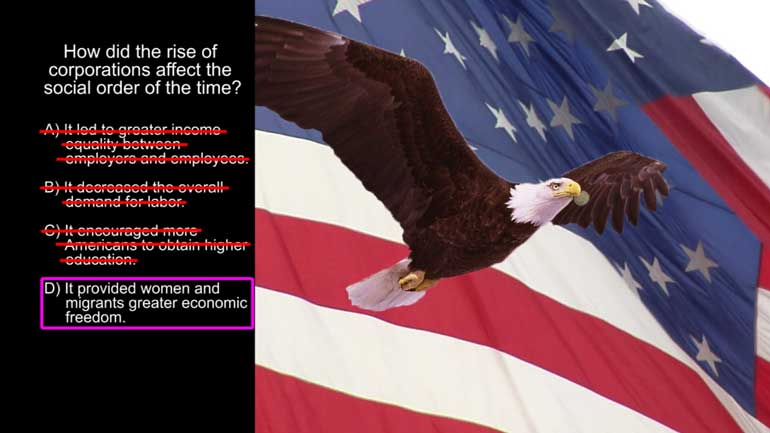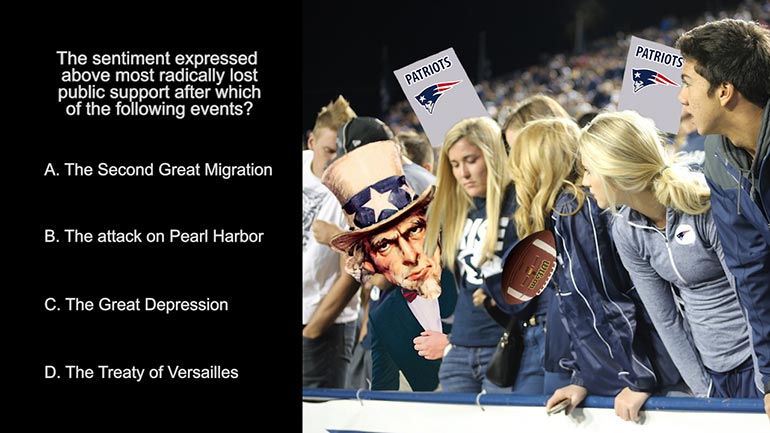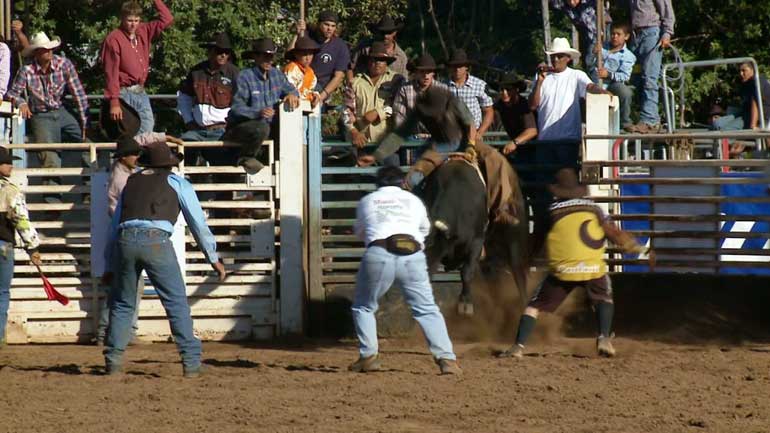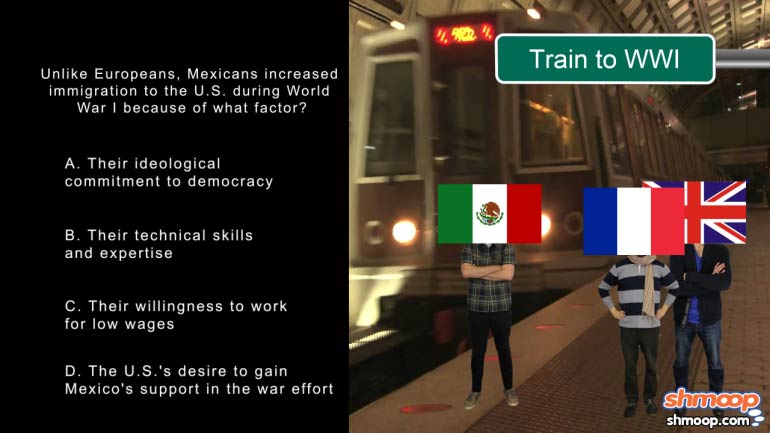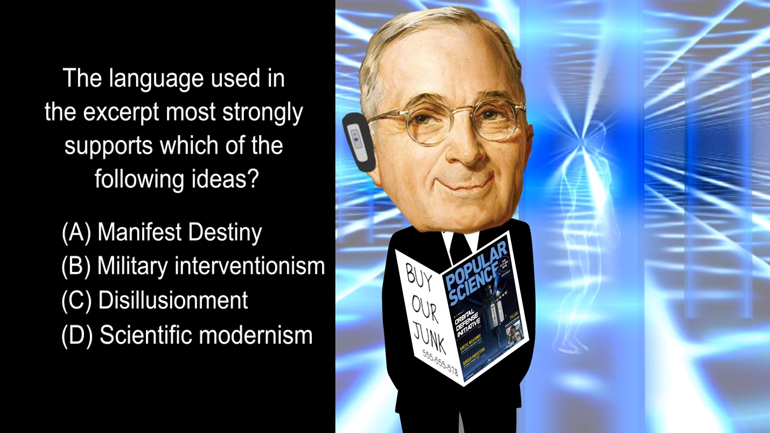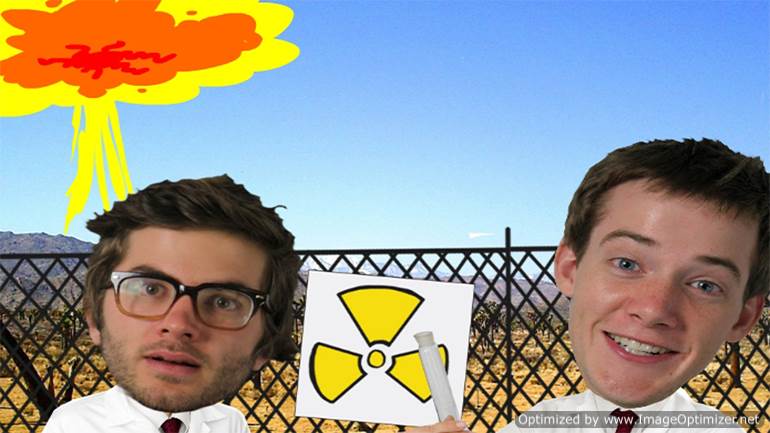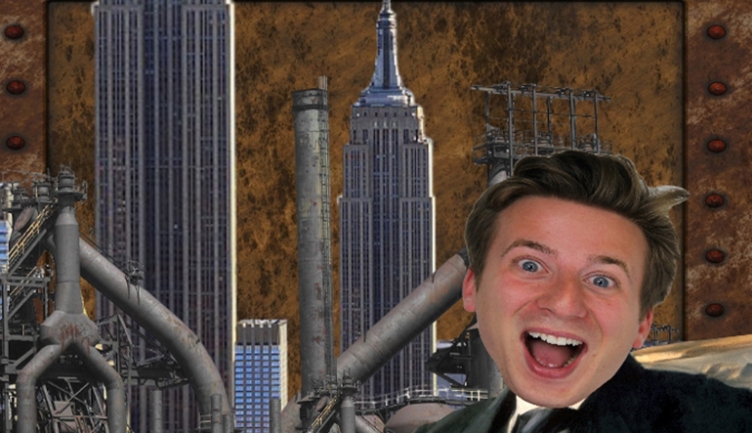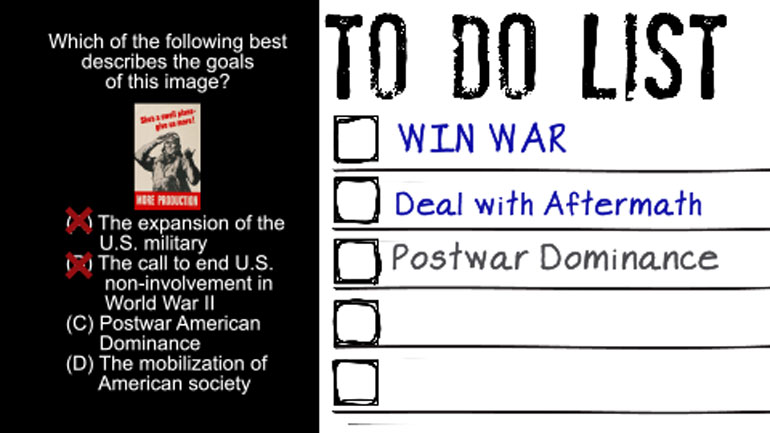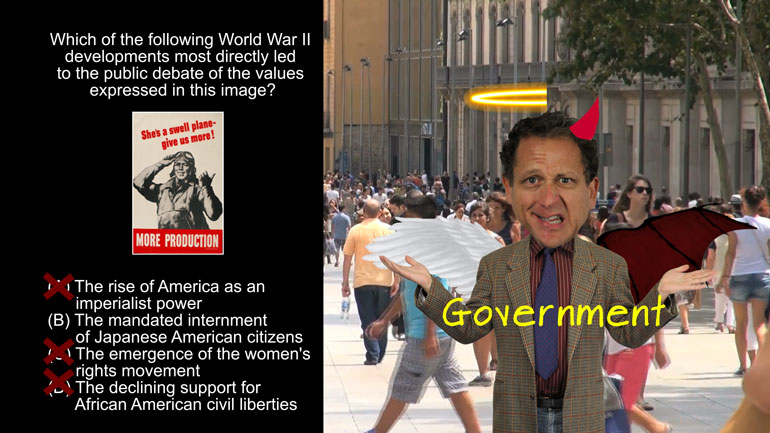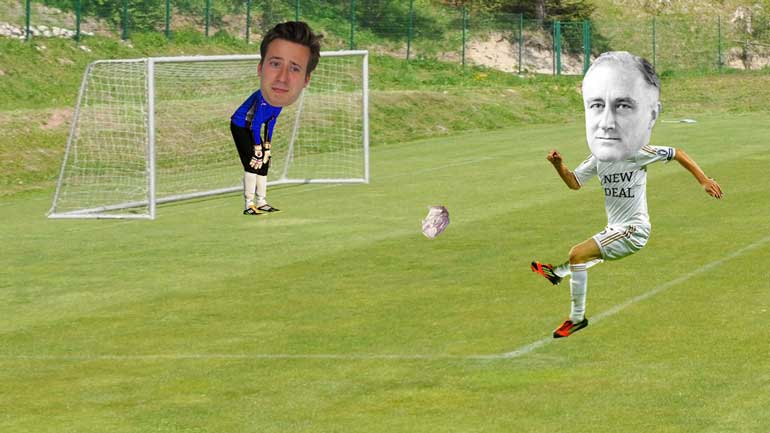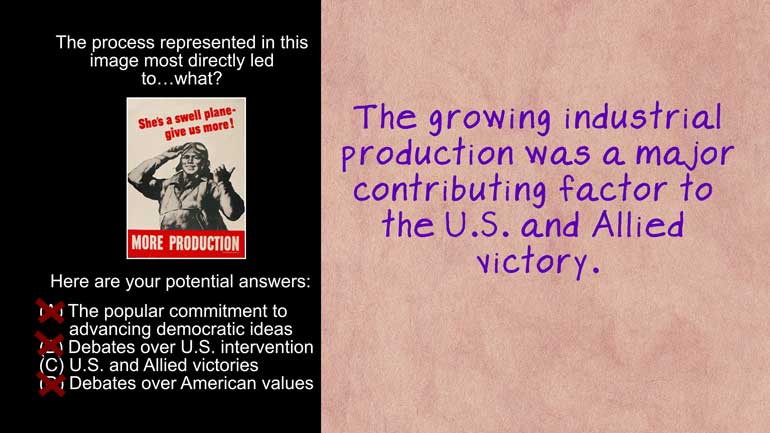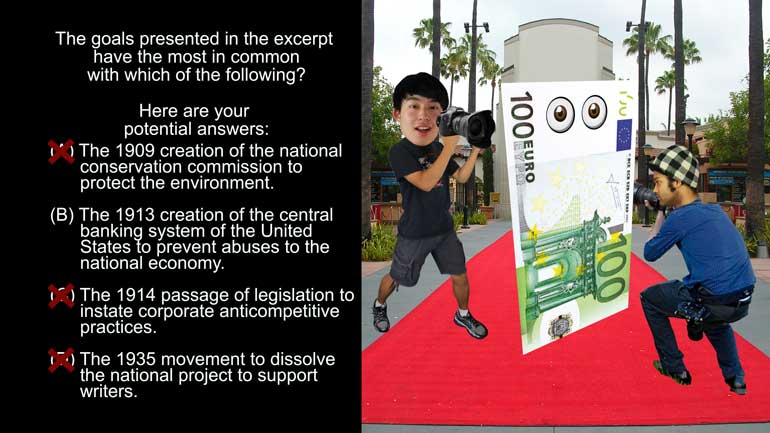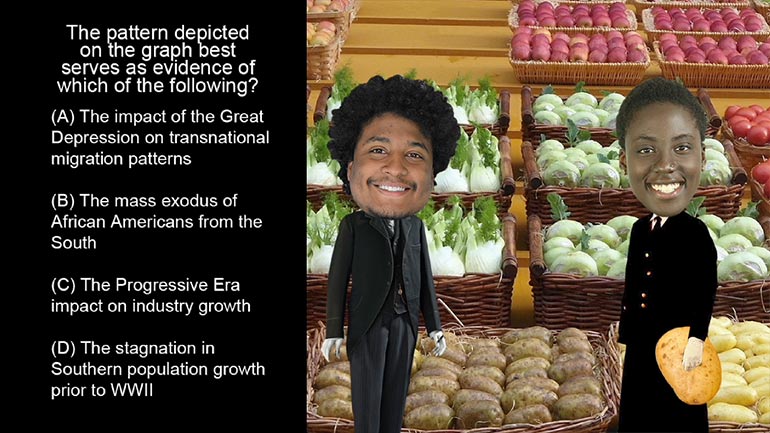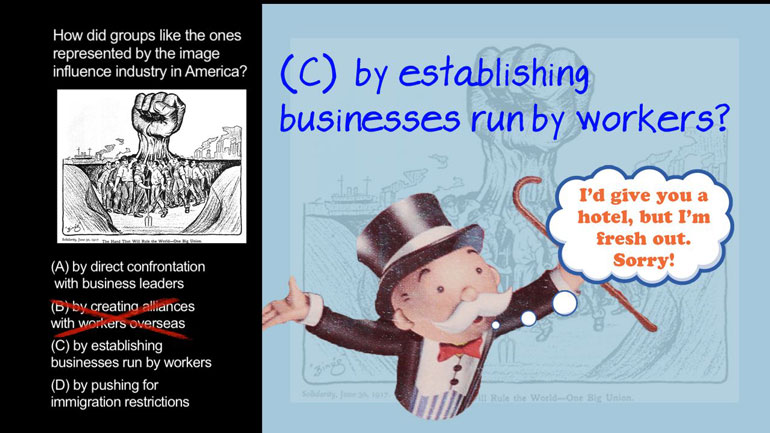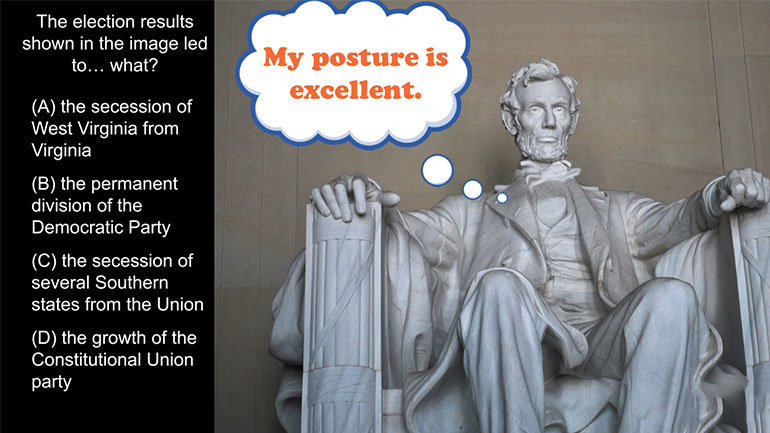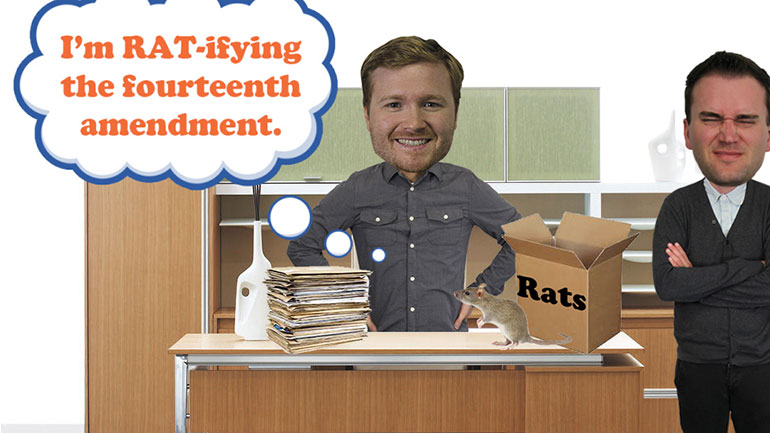ShmoopTube
Where Monty Python meets your 10th grade teacher.
Search Thousands of Shmoop Videos
Period 7: 1890–1945 Videos 19 videos
AP U.S. History 1.3 Period 7: 1890-1945. How did the rise of the corporations affect the social order of the time?
AP U.S. History 2.1 Period 7: 1890-1945. Opponents of Stimson's policies would most likely have supported which of the following?
AP U.S. History 2.2 Period 7: 1890–1945. The sentiment expressed above most radically lost public support after which of the following events?
AP U.S. History 2.2 Period 7: 1890–1945 206 Views
Share It!
Description:
AP U.S. History 2.2 Period 7: 1890–1945. The sentiment expressed above most radically lost public support after which of the following events?
Transcript
- 00:00
Thank you We sneak and here's your shmoop du jour
- 00:05
brought to you by isolationism Preferred strategy of middle children
- 00:10
on family vacations All right here's The excerpt in the
- 00:15
viewing pen situation notifying government training too public there's a
- 00:19
letter here all right And the question the sentiment expressed
Full Transcript
- 00:23
above most radically lost public support after which of the
- 00:27
following events and here your pencil answer creation All right
- 00:33
we know from the date on this excerpt that the
- 00:36
u s was in major isolationist mode at the time
- 00:40
preferring to remain on the sidelines of any international conflict
- 00:43
rather than get involved So we need to figure out
- 00:45
which answer best describes why the public would have suddenly
- 00:48
stopped supporting this foreign policy principle Would these sentiments have
- 00:52
radically lost public support after a the second great migration
- 00:56
the second great migration refers to the internal movement of
- 01:00
african americans in the u s not foreign policies that
- 01:04
don't make anything for the isolationist zeal have dampened following
- 01:07
see the great depression Well because the great depression crippled
- 01:11
the us economy people believe that america should remain isolationist
- 01:15
in order to get back on its economic feet that
- 01:17
knocks out c too with the public have turned on
- 01:20
isolationism after d the treaty of versailles Well actually the
- 01:24
treaty of versailles was one of the peace treaties to
- 01:26
end world war ii And after such a horrible international
- 01:29
conflict people were ready to leave it all alone and
- 01:32
get back to their own thing So it's not d
- 01:34
either which means public support for isolationism would have eroded
- 01:38
after b the attack on pearl harbor america's illusion of
- 01:43
safety shattered with the japanese attack on pearl harbor And
- 01:46
rather than remain uninvolved in world war i two americans
- 01:50
decided that they would join the fight against the axis
- 01:52
powers So b is the right answer In fact the
- 01:55
american shift from isolationism teo interventionism actually helped turn the
- 01:59
tide in favor of the allied forces Who needs the
- 02:02
moon when you've got the force of a rising superpower 00:02:05.9 --> [endTime] right
Related Videos
AP U.S. History Diagnostic 1. Relationships like the one shown in the image resulted in the development of...what?
AP U.S. History Diagnostic 15. How did groups like the ones represented by the image influence industry in America?
AP U.S. History Diagnostic 10. What led to the splintering of the political parties shown in the image?
AP U.S. History Diagnostic 11. The election results shown in the image led to...what?
AP U.S. History Diagnostic 12. How did the Reconstruction Acts open up political opportunities for former slaves?
